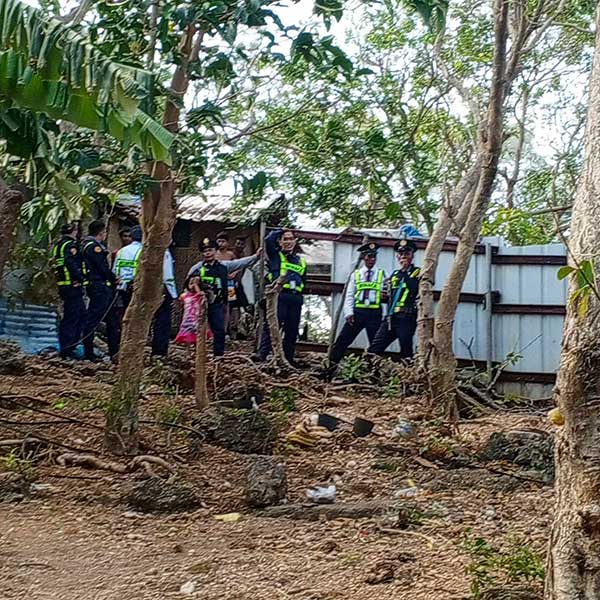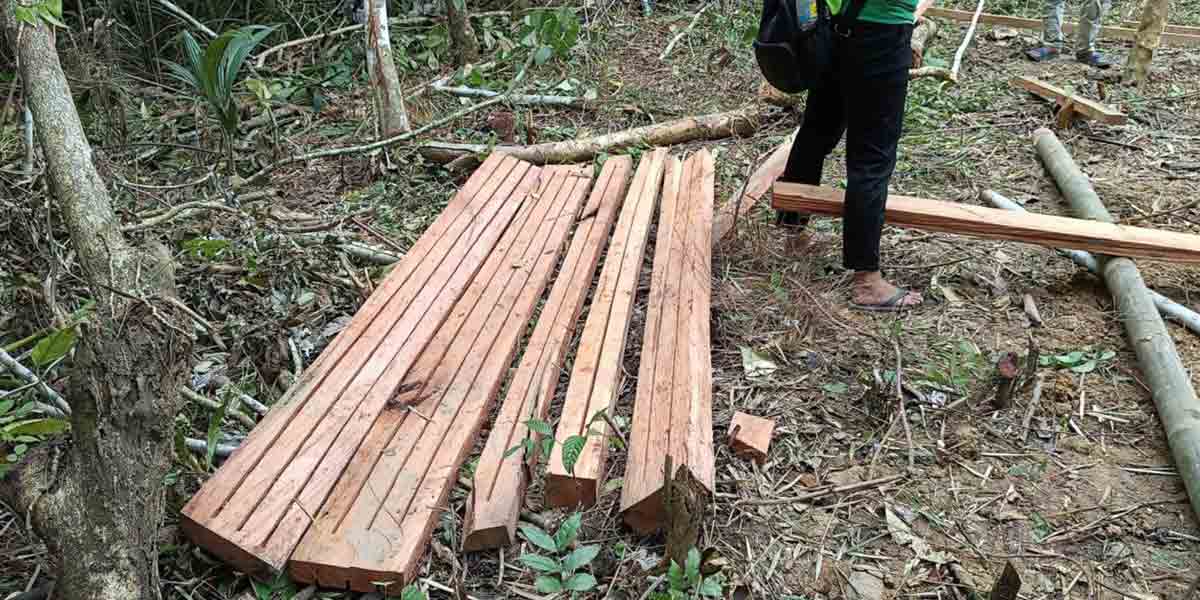
By Joseph Bernard A. Marzan
The Ati tribe members of Boracay were rudely disturbed on the morning of March 24 by the sounds of galvanized iron sheets being installed.
The source: security guards erecting a barricade on their land.
The guards cited a March 5, 2024, resolution from the Department of Agrarian Reform (DAR), which upheld the revocation of the Certificates of Land Ownership Award (CLOA) issued to the Atis.
The resolution was new to the tribe and their lawyer, who claim they never received it.
Maria Tamboon, an Ati tribe leader, described to Daily Guardian the confusion and confrontation that unfolded. The tribe was taken aback as the security personnel did not use official entrances but rather cut through makeshift barriers.
“[T]he mothers were startled. They looked around at what had happened, and one of them approached one of the security guards, asking them why they were doing this [in the morning]. They did not go through [one of our installed] gates but through the [G.I. sheets] we set up,” Tamboon said.
Tamboon recounted the mothers’ shock as one approached the guards, questioning their early intrusion without any prior notice to the tribe. The guards presented a CLOA cancellation document, the authenticity of which even their lawyer questioned due to lack of formal receipt.
“[The mothers] asked again why they entered without any notice to us. They showed the cancellation [order] of the CLOAs which were not legal and which we did not receive, so even our lawyer was surprised by what they showed,” she added.
The security presence quickly grew from 3 to 25 guards, who further escalated the situation by installing an additional gate, trapping children without their mothers.
In one instance, a child had to scale the iron fence to reach an infant in need of breastfeeding.
Tamboon emphasized the tribe’s ancestral claim to the land, arguing that they would not defend it so fiercely had it not been granted to them officially.
“We have the title. For us Atis, if we were given land, we give value to it and protect it, and we don’t want to give it if it was not in the right process. We follow. We’re not going to use force against them until getting the land,” she said.
“We didn’t ask for it, the government gave it to us, and pushed us to accept it. And this is what is happening to us? The government itself is getting the land? They shouldn’t have given it to us in the first place, so we wouldn’t have this problem.”
The tribe’s lawyer Daniel Dinopol criticized the enforcement method of the DAR’s order, which he believes should be executed by a court-appointed sheriff, not security guards.
“It should be the sheriff of the courts, or of the judicial body. The DAR secretary’s order cannot be implemented by even a mayor or a governor, but only the sheriff of that office. Why were they authorized to do so? That is usurpation of another function. They are acting as if they were a sheriff,” Dinopol told Daily Guardian via phone interview.
He revealed plans to challenge the DAR’s actions through a petition for certiorari with the Court of Appeals, once an official copy of the order is received.
In 2018, the Ati tribe was awarded land by President Rodrigo Duterte, an act now being undermined by the DAR-Western Visayas office’s cancellation orders.
The regional office deemed the land non-agricultural, contradicting its use by the Atis for farming activities that support the local community and businesses.
The motion for reconsideration with the regional office filed by Dinopol for the Boracay Ati Tribe Organization (BATO) was denied, which prompted their camp to file a notice of appeal with the DAR central office.
Another motion for reconsideration with the said office earlier this year. Both actions were denied by the central office.





















